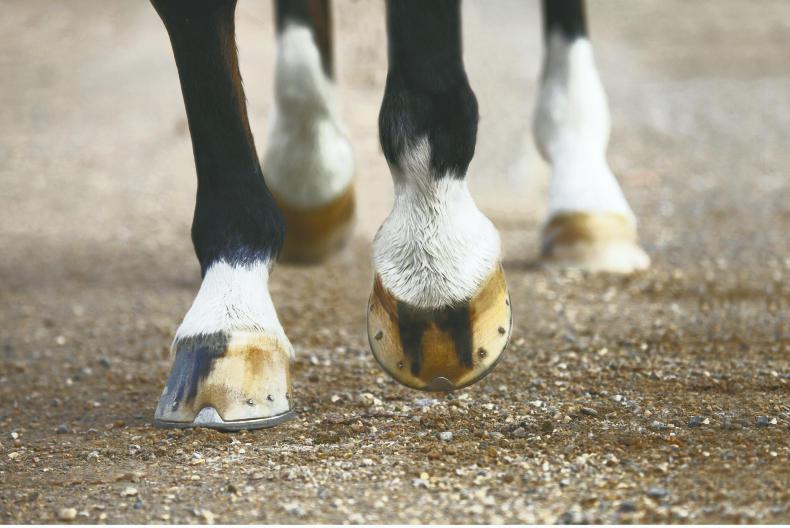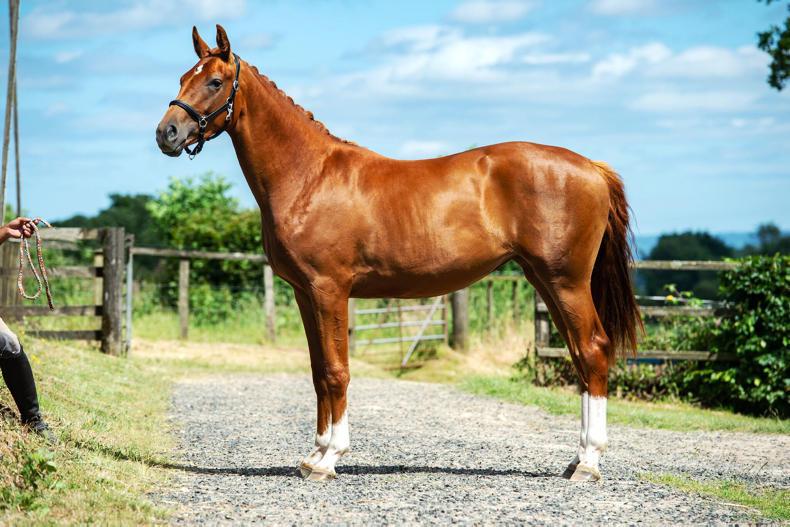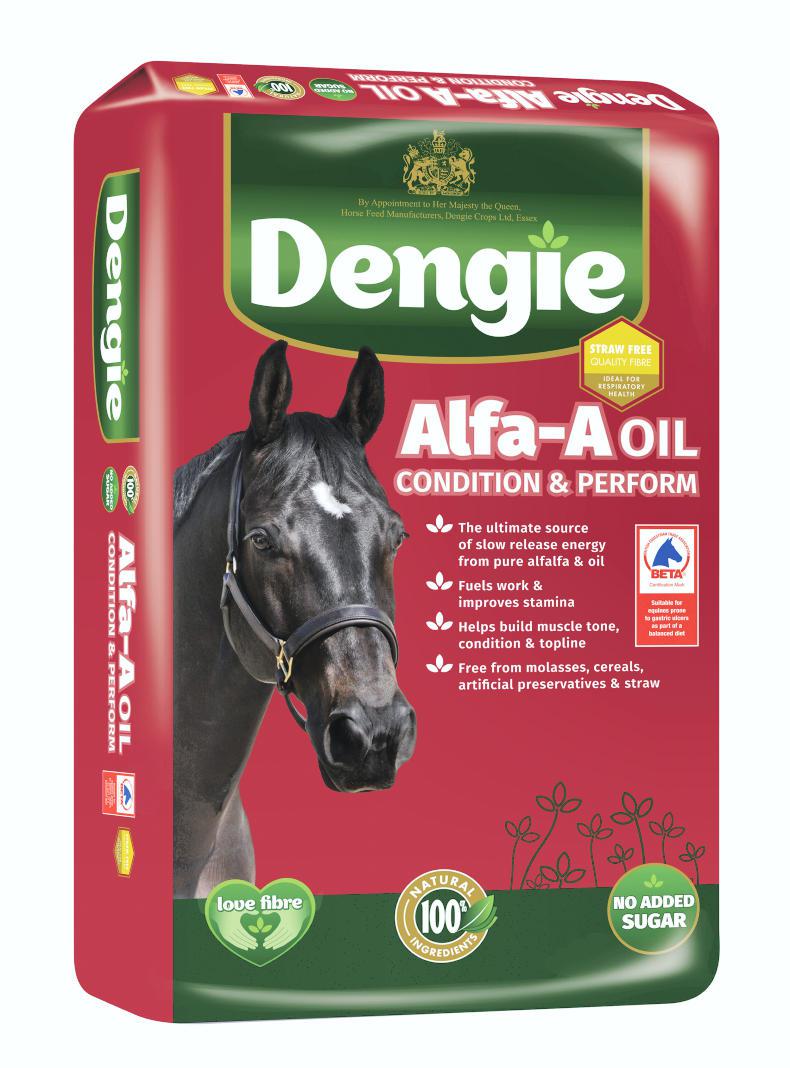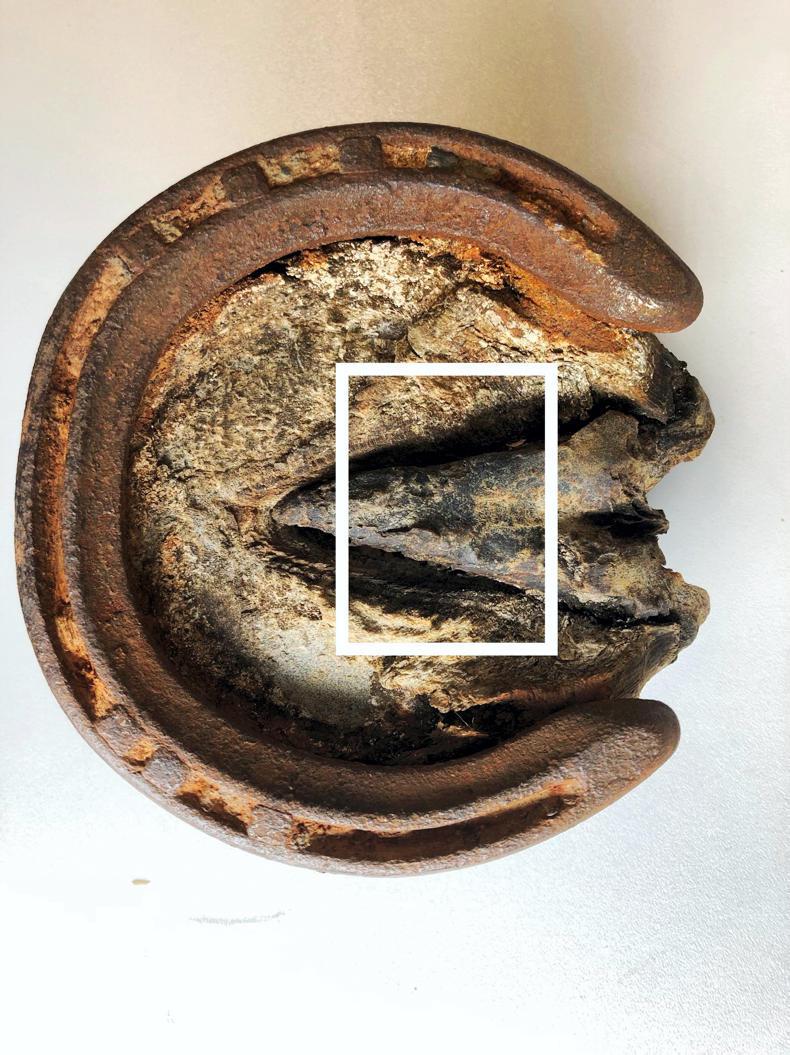WE’VE all heard the saying “no foot, no horse” and if you’ve ever owned a horse with poor feet you will know how frustrating it is not to be able to ride because they’ve thrown a shoe again!
There are lots of reasons why horses have poor feet, ranging from conformation to poor farriery, and so it is important to consider all of these areas as targeting one in isolation may not be effective in making improvements.
Diet is fundamentally linked to good health and research has shown that certain nutrients can be of particular benefit to improving hoof growth.
BIOTIN
Biotin is a water soluble B vitamin that is commonly recognised as being beneficial for horses with poor hooves. Like other B vitamins, biotin is produced by the micro-organisms that live in the horse’s hind gut as they break down fibre. When plenty of fibre is fed, a healthy population of micro organisms can usually provide sufficient biotin to meet the basic requirements of horses and ponies.
Poor quality hooves can therefore be indicative of an unhealthy digestive system which may occur as a result of stress and/or restricted fibre intake which is most common in performance horses and sometimes good doers. In these situations, trying to address the cause of the problem by feeding more fibre and using a digestive enhancing supplement such as probiotics or prebiotics should be beneficial.
HOW MUCH BIOTIN?
Several research studies have been conducted to identify the level of biotin that can help address poor hoof horn quality. One found that 15mg of biotin per day achieved increased hoof hardness and greater growth rates than 7.5mg of biotin per day, whereas another study found that continuous supplementation with biotin at a daily dose of 20mg improved and maintained hoof horn quality in horses with less than optimum hoof quality.
This information suggests that between 15 and 20mg per day should help to generate healthy hooves.
Levels of biotin in alfalfa are relatively high at 0.2mg/kg DM compared to oats at 0.11mg/kg DM and it is thought that alfalfa contains more bio-available biotin than other sources. Replace cereal based feeds with Alfa-A to provide more fibre and more bio-available biotin
ZINC
Zinc is involved in the health and integrity of hair, skin and hoof. Hooves require zinc for the prevention of defective keratin, the tough material found in the outer layers of hoof and skin. If keratin is not properly formed the hoof will be soft and brittle. Research found that horses with insufficient hoof horn strength had less zinc in the hoof horn and plasma than horses with no hoof horn damage.
The form in which zinc is added to feeds and supplements could impact on the quality of your horse’s hooves.
Zinc is a trace mineral which is vulnerable to interactions with other minerals in the digestive system when in an inorganic form.
Chelated zinc is an organic form of the mineral which is achieved by attaching it to a peptide or amino acid. This process improves the absorption of the zinc and so tends to result in better health and condition of tissues such as hooves.
CALCIUM
Calcium is a mineral essential for proper bone development but also required for cell-to-cell attachment in the hoof horn. Calcium is linked very closely with phosphorous and the ratio of these two minerals in the diet is crucial; ideally a 2:1 calcium to phosphorous ratio should exist.
In a study conducted at the Royal Dick Veterinary School School by Dr Sue Kempson, two different problems with hoof horn were identified. The first was described as a lack of horn in the outer layers and showed improvement when biotin was added to the horse’s diet.
The second, described as lack of good keratin attachment, improved only when calcium intake was increased alongside the biotin. In this study the calcium was increased by adding alfalfa which is a naturally abundant source of highly available calcium.
The most common reason for diets being low in calcium is when high levels of straight cereals or cereal by-products such as bran are fed which are high in phosphorous. Adding alfalfa when feeding straights is an easy way to help create a better calcium to phosphorous ratio.
TOP TIPS FOR ADDRESSING POOR QUALITY HOOVES:
For more information visit www.dengie.com or call 0845 345 5115 or for Republic of Ireland customers call 1800 991 809*
*Call charges apply, see website for details.

International event rider Lucy Jackson


 This is a subscriber-only article
This is a subscriber-only article
 It looks like you're browsing in private mode
It looks like you're browsing in private mode










SHARING OPTIONS: